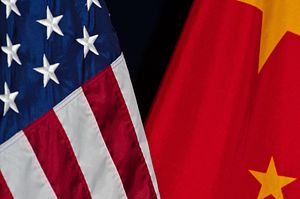Beijing and Washington are poised to name new ambassadors to each other’s capitals as relations between the two major powers continue to slide.
On China’s side, Qin Gang, currently serving as vice minister of foreign affairs under Foreign Minister Wang Yi, has been tipped to fill the shoes of Cui Tiankai. Cui has been posted as the Chinese ambassador to the United States since 2013, the longest stint for anyone in that position. His tenure has also witnessed remarkable highs and the plummeting to new lows between Beijing and Washington. Despite the worsening of relations, Cui has managed to forge relationships and has been willing to speak with some frequency to an array of U.S. media outlets. At 68, Cui is set to retire following the imposition of mandatory retirement ages for top officials. Qin, at 55, is the youngest of the sitting vice ministers of foreign affairs.
Born in Tianjin, Qin is a seasoned Chinese diplomat, most recently serving as the Ministry of Foreign Affairs’ director of the Protocol Department and director-general of the Information Department as well as spokesperson. Through Qin’s upward climb in the MFA since joining in 1988, his responsibilities have included managing information, European affairs, and news, as well as event planning for Chinese President Xi Jinping. Qin has accompanied Xi on numerous overseas visits and has overseen schedules and itineraries, often ensuring that foreign trips stick to the intended diplomatic script.
Although Qin has a reputation for being more measured than some of the now notorious “wolf warrior” diplomats, he is also known for speaking frankly and exhibiting nationalistic overtones. Most recently, he condemned countries and individuals who smear China as “unscrupulous” and “evil wolves” at a press briefing of the China-CEEC Summit.
On the U.S. side, Nicholas Burns is slated to take on the ambassadorship to China. The post has been vacant since October 2020, when former President Donald Trump’s appointee Terry Branstad stepped down to assist in the Trump reelection campaign (Robert W. Forden, a state department China specialist who had previously served twice at the Beijing Embassy, has been the chargé d’affaires since Branstad’s departure.)
Across the Obama and Trump administrations, appointees to the U.S. ambassadorship in China have all been high-profile politicians. Jon Huntsman (2009-2011) was previously governor of Utah, Gary Locke (2011-2014) had served as U.S. secretary of commerce and governor of Washington state, Max Baucus (2014-2017) was a veteran U.S. senator from Montana, and Branstad (2017-2020) the long-time governor of Iowa.
The potential selection of Burns emphasizes Secretary of State Antony Blinken and the Biden administration’s prioritization of reinvesting in and committing to expertise developed by career diplomats in a bid to reinvigorate U.S. diplomacy. Burns, currently professor of the practice of diplomacy and international politics at Harvard‘s John F. Kennedy School of Government and a member of the Board of Directors of the school’s Belfer Center for Science and International Affairs, is a veteran diplomat who has served under both Democratic and Republican administrations during a more than two-decade career working for the U.S. government. Before his retirement from the Foreign Service in 2008, he served as under secretary of state for political affairs from 2005 to 2008, U.S. ambassador to NATO (2001-2005), ambassador to Greece (1997-2001), and U.S. State Department spokesman (1995-1997). Burns was also a foreign policy advisor to Joe Biden during the presidential campaign.
Burns and Qin share extensive backgrounds representing their countries as members of the respective diplomatic corps. Of note, however, is the fact that neither diplomat has experience in or specialty knowledge of the other country. Perhaps more important will be the fact each has access to and a trusted relationship with the leaders whom they will be serving; given the complexities of the China-U.S. relationship both Biden and Xi will be inclined to invest considerable time and effort managing these ties.
The new ambassadors will be tasked with representing their leader’s tougher positions toward the other, while simultaneously finding ways to mend and build bridges to stabilize the relationship. This task will not be easy as political and domestic pressures seem to be pushing the two sides to view each other with greater animosity and distrust.
Despite the United States’ presidential transition from Trump to Biden, China-U.S. tensions across numerous policy areas remain. The first bilateral dialogue of the Biden administration, featuring Blinken and National Security Advisor Jake Sullivan as well as Wang and Yang Jiechi, the director of the Office of the Central Commission for Foreign Affairs, hosted in Anchorage, Alaska in May got off to what could only be described as a fiery start. As The Diplomat’s Shannon Tiezzi noted, the Chinese delegation’s lengthy public remarks signaled that “China doesn’t see itself as the junior partner in the China-U.S. dynamic, and is no longer willing to play that role.” This initial meeting certainly set the tone, making it clear that both China’s and the United States’ new envoys will be taking on new posts in less than hospitable climates.

































